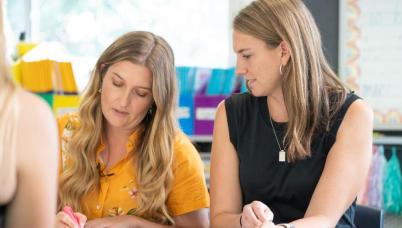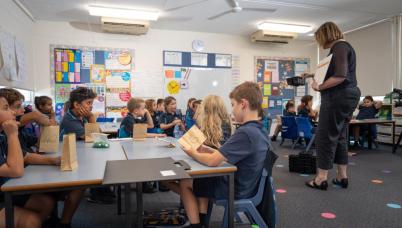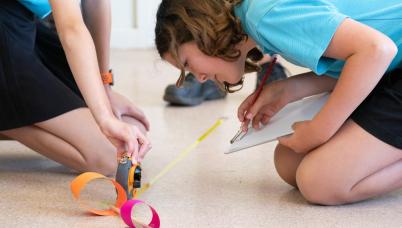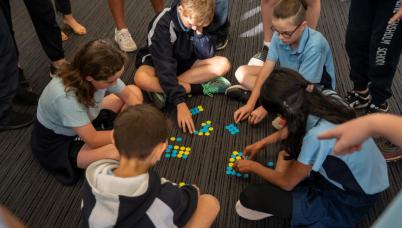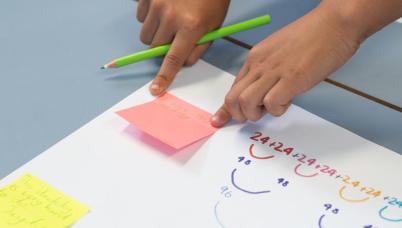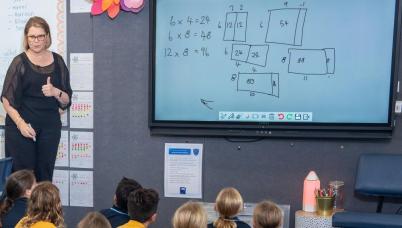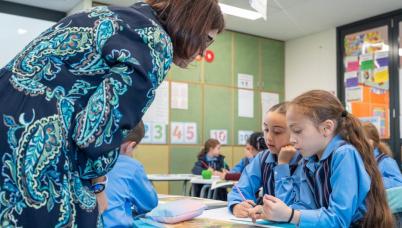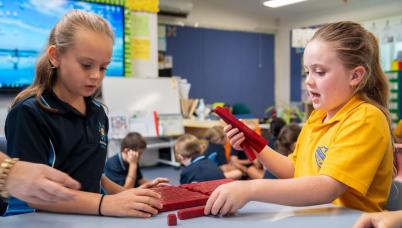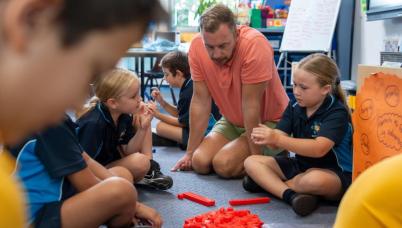Pedagogical toolbox
Explore our collection of pedagogical tools which support you to implement the reSolve Approach in your classroom.
Filter Tool Types
Anticipate
Anticipating student thinking involves envisioning likely student strategies and planning how you will respond to these strategies.
Checkpoint
Checkpoints are an opportunity for students to pause, see how other groups have been tackling the task, and consider possible solutions to difficulties that groups might be facing.
Data collection pilot
A data collection pilot allows students to practice collecting a small amount of data, to identify and address any challenges before they collect a larger dataset.
Fishbowl
Fishbowl activities provide an opportunity for students to learn from each other as they observe and notice other students engaging in a task.
Gallery walk
The gallery walk provides students with the opportunity to critically view and review the work of other students in the class.
Number strings
Number strings are short routines which use a carefully crafted sequence of problems to highlight number relationships and to build specific mental strategies.
Observation
Observing students at work allows the teacher to see the mathematical ideas that students are exploring and the thinking they are engaging in, and to support students get to where they should go next.
Observation chart
An observation chart supports observation of students and enables you to go back and check on students who have struggled or extend students who are doing well.
Questioning
Teacher questioning is an opportunity to assess what students understand and to advance them to towards the mathematics goal of the lesson.
